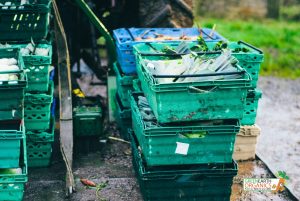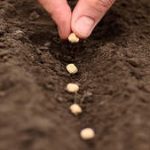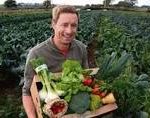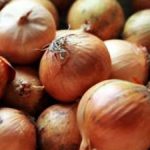I swim in the sea three or four times a week, and having very few clothes on at 7.30am in the morning and getting into the sea you notice when the temperature changes, you notice alot!
So the temperature change last week was dramatic, there was frost on the ground and the sea water was cold, quite literally the next day the sea temperature was up 3-4C and the air temperature had jumped 15C!
I was sitting in my office drinking a nice warm cup of tea at home on our farm mulling over the sudden change in the temperature outside when I was stopped in my tracks by a video posted by a reputable magazine “The New Scientist” the author claimed that organic food was not the choice for those who care about the planet.
I started Green Earth Organics precisely to do something positive for our planet and because I believe the exact opposite of what this video clip was claiming. Here is the clip
https://www.youtube.com/watch?v=28EhPR9_24I
Agriculture accounts for one third of all green house gas emissions.
In South America vast tracks of rainforest are being cleared. They are being cleared to grow GM soya to feed the insatiable demand for cheap meat. Animals reared in large “factories” are being fed grain, GM Soya (93-100% of all soya is GM and is used mainly for the production of animal feed), and GM corn. This is the primary reason for the destruction of the rainforests, and not as the author suggests organic agriculture.
Eating less meat is something we all need to consider.
The idea that the use of GM crops are the best solution we have to mitigate climate change has not been borne out in reality. GM technology has been primarily used to produce commercially patentable crops that are more resistant to herbicides. In a nutshell crops such as “roundup ready” soya give large multi-billion dollar corporations the ability to generate vast profits from these seeds that they effectively “own” which allow farmers to apply more of their “chemicals” to control the weeds in the fields, a double win for these agri-companies.
The argument that organic farming relies on external inputs and that yields are lower is misleading. Conventional agriculture relies heavily on externally supplied inputs, these inputs are 100% reliant on oil to produce, the process of making artificial fertiliser is highly energy intensive.
On organic farms the use of rotations and green manures has the double positive impact of building soil structure, increasing nitrogen naturally and helping carbon sequestration by having higher concentration of carbon storage.
30% of Global CO2 emissions come from agriculture. We simply cannot continue to eat and farm as we do. This is the missing link in all arguments relating to food, the planet is finite. We need to eat less or no meat, we need to eat organically locally sourced vegetables where possible and we need to reduce food waste.
Organic farming is not perfect, but a well-managed modern organic farm can come close to equaling the yields on conventional farms.
Here’s to an organic Christmas
Kenneth
www.greenearthorganics.ie
PS We would love to hear your thoughts on the points raised in this video….










